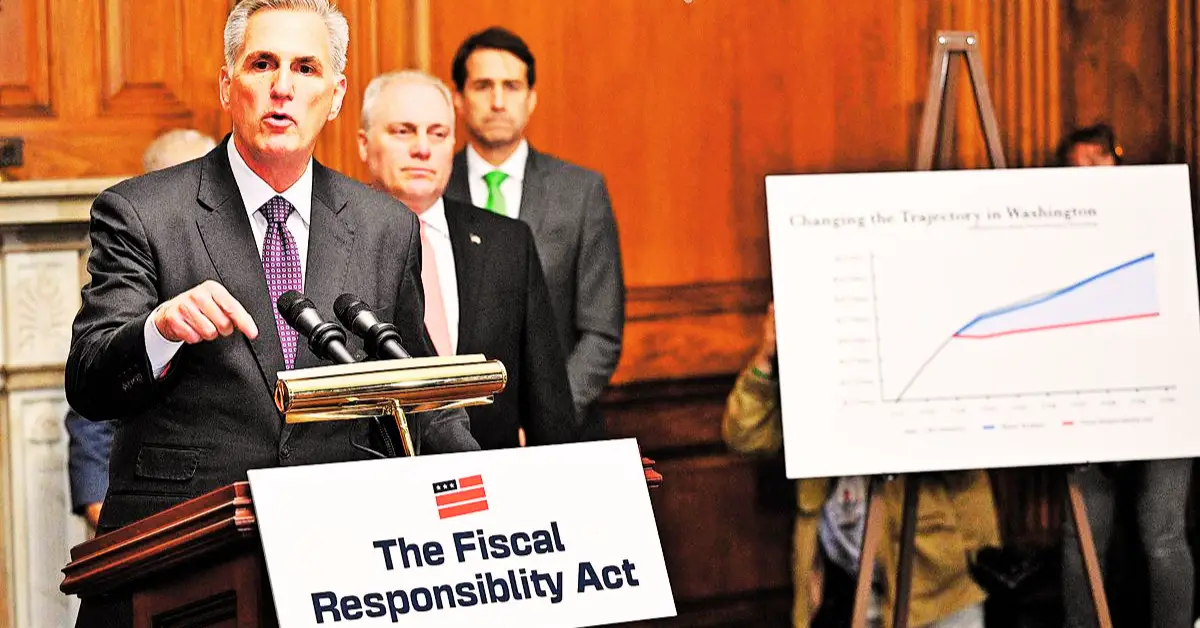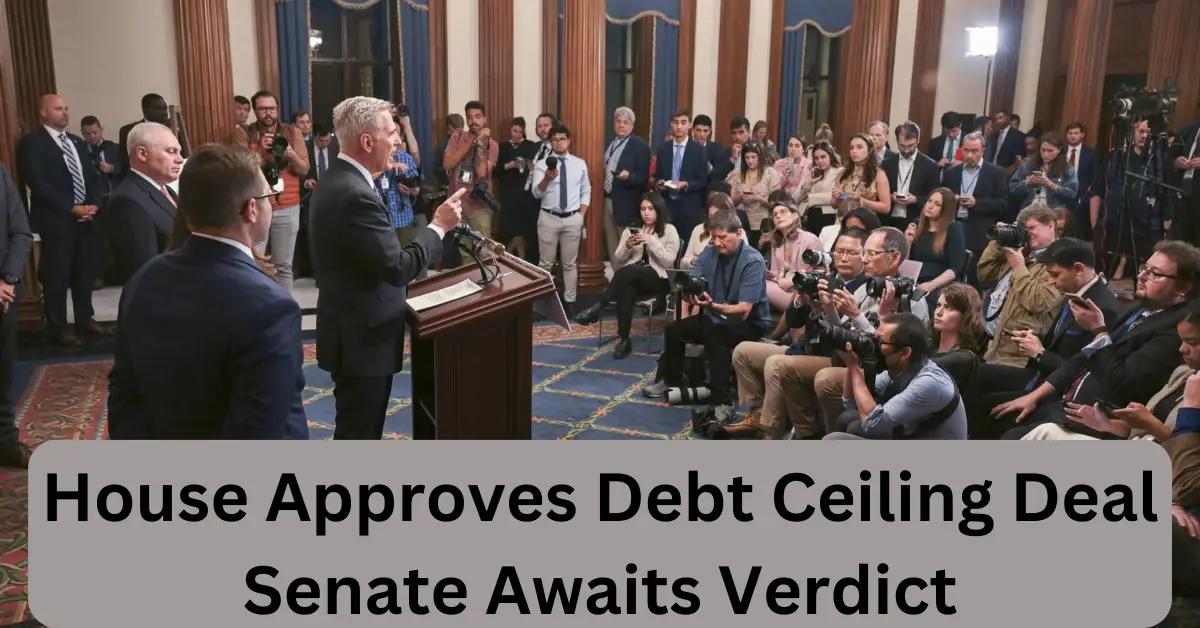In a solid bipartisan vote that eased concerns about a historic government default, the House voted late on Wednesday to adopt legislation to suspend the debt ceiling and limit government spending. The proposal was then sent to the Senate.
On Wednesday night, the Fiscal Responsibility Act of 2023 passed 314-117 with the support of the majority of Democrats and the majority of Republicans. Republicans voted 149 times in favor of the measure and 71 times against it, while Democrats voted 165 times in favor and 46 times against it.
According to President Biden, the proposal is “good news for the American people and the American economy,” he asked the Senate to consider it as quickly as feasible.
While it’s not a perfect bill, the House passage of the #DebtCeiling compromise is, as noted by @POTUS, “good news for the American people and the American economy.”
This notable example of bipartisanship (see chart) is also good news for the global#economy and #markets. pic.twitter.com/dFNfvNISbf— Mohamed A. El-Erian (@elerianm) June 1, 2023
In a statement, Mr. Biden said, “tonight, the House took a critical step forward to prevent a first-ever default and protect our country’s hard-earned and historic economic recovery.”
“This budget agreement is a bipartisan compromise. Neither side got everything it wanted. That’s the responsibility of governing. I want to thank Speaker McCarthy and his team for negotiating in good faith and Leader Jeffries for his leadership.”
McCarthy commended the Republican party and negotiators for getting to this point during a press conference following the vote.

McCarthy told reporters, “I’ve been thinking about this day before my vote for speaker because I knew the debt ceiling was coming.”
“I wanted to make history. I wanted to do something no other Congress has done, that we would literally turn the ship and for the first time in quite some time, we’d spend less than we spent the year before. Tonight, we all made history.”
Democratic Senate Majority Leader Chuck Schumer told reporters, “We hope we can move the bill quickly here in the Senate and bring it to the president’s desk as soon as possible.”
A rule to advance the bill on Wednesday momentarily seemed in jeopardy after receiving close to 30 Republican no-votes. The regulation ultimately received the support of more than 50 Democrats, paving the path for a vote on final passage later that evening.
Republican and Democratic lawmakers pushed for the bill’s passage before the vote, acknowledging they didn’t get everything they wanted.
If you are interested to know more about other trending news then read our other articles here:
- Fox News Reaches Settlement with Dominion in Defamation Battle
- Andrew Freedman Veteran News and Entertainment Publicist Died at Age 67
“Mr. Speaker, the Rolling Stones said, you can’t always get what you want, you get what you need. And we need to avert a default that would stop checks to seniors, benefits for our veterans, hurt the U.S. dollar and Americans’ retirement savings,” as outlined on the House floor by Republican Rep. Nicole Malliotakis of New York before the vote.
Although she considers the proposal “objectionable,” former House Speaker Nancy Pelosi stated it would prevent a catastrophic default.
Democrats will “continue to do what is necessary” to “build an economy that works for everyday Americans,” according to House Minority Leader Hakeem Jeffries, who criticized the Republican leadership for failing to keep their party united.
“The question that remains right now is what will the House Republican majority do? It appears that you may have lost control of the floor of the House of Representatives,” It appears like you may have lost control of the House of Representatives floor.
Rep. Garret Graves, a Republican and one of the negotiators with the White House on the agreement, voiced displeasure with the nation’s mounting debt but praised the bill’s “historic” savings and urged his colleagues to pass the law.
Before the vote, Graves declared on the House floor that “it is absolutely historic.” We are in a position where we have legislation before us that will lead to the most significant savings in American history for the first time ever thanks to the strategic nature of this speaker.
Conservative House Republicans rejected the arrangement negotiated by McCarthy and Mr. Biden, and some members of the group known as the House Freedom Caucus threatened to seek a vote to remove McCarthy as speaker.
Following the 2024 elections, the plan would postpone raising the debt ceiling until the first quarter of 2025. Domestic non-defense spending is expected to be approximately steady through 2024, and the program permits a slight rise of 1% in 2025.
The bill also updates the country’s permitting regulations and, in particular, grants last-minute permits for a natural gas pipeline in West Virginia supported by Democratic Sen. Joe Manchin of West Virginia.
The law eliminates work requirements for veterans and young adults aging out of the foster care system but reinstates COVID-19 funds that have not yet been spent and adds them for food assistance recipients until their early 50s.
Without taking action to raise the debt ceiling, Treasury Secretary Janet Yellen predicted that the United States would run out of money on June 5.
Since Mr. Biden re-engaged on the subject after adamantly stating for months that he would not negotiate on extending the debt ceiling, White House officials and House Republican negotiators have been working at the Capitol and the White House in a series of long sessions to iron out the mechanics of an agreement.
On the Senate floor earlier on Wednesday, Schumer urged senators to be ready to act swiftly on the bill. “I cannot stress enough that we have no margin — no margin — for error,” he said.
“Either we proceed quickly and send this bipartisan agreement to the president’s desk or the federal government will default for the first time ever.” In a letter this week, he told them to “prepare for potential Friday and weekend votes.”
Knowledge should be shared, and we’re committed to ensuring everyone gets high-quality content. If you enjoyed this article, check our other posts for valuable insights and advice.

Leave a Reply